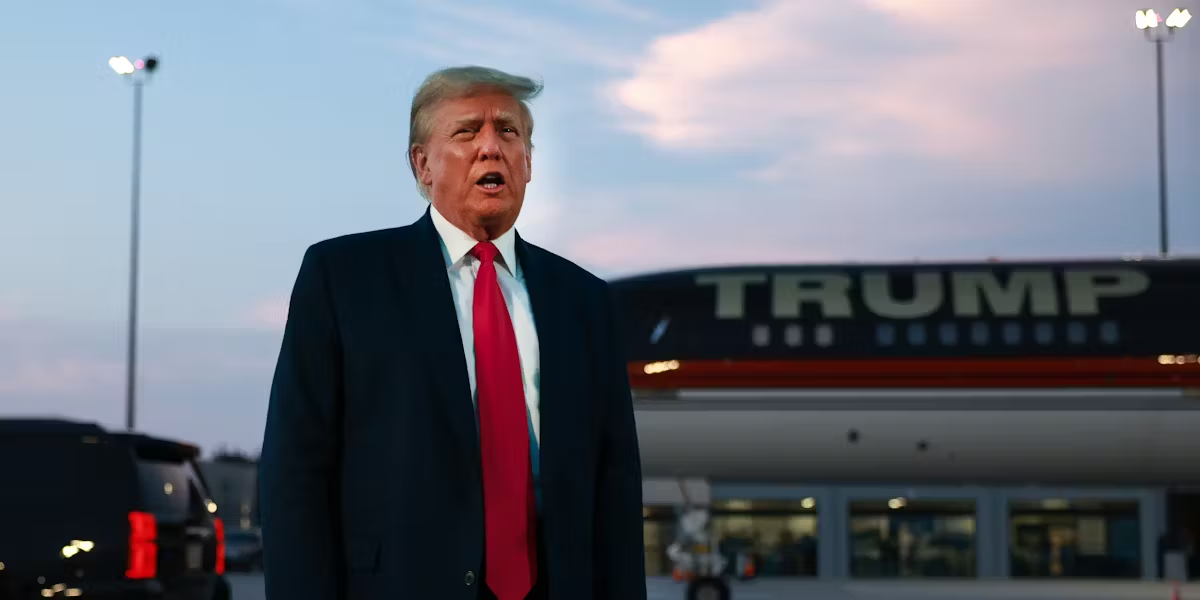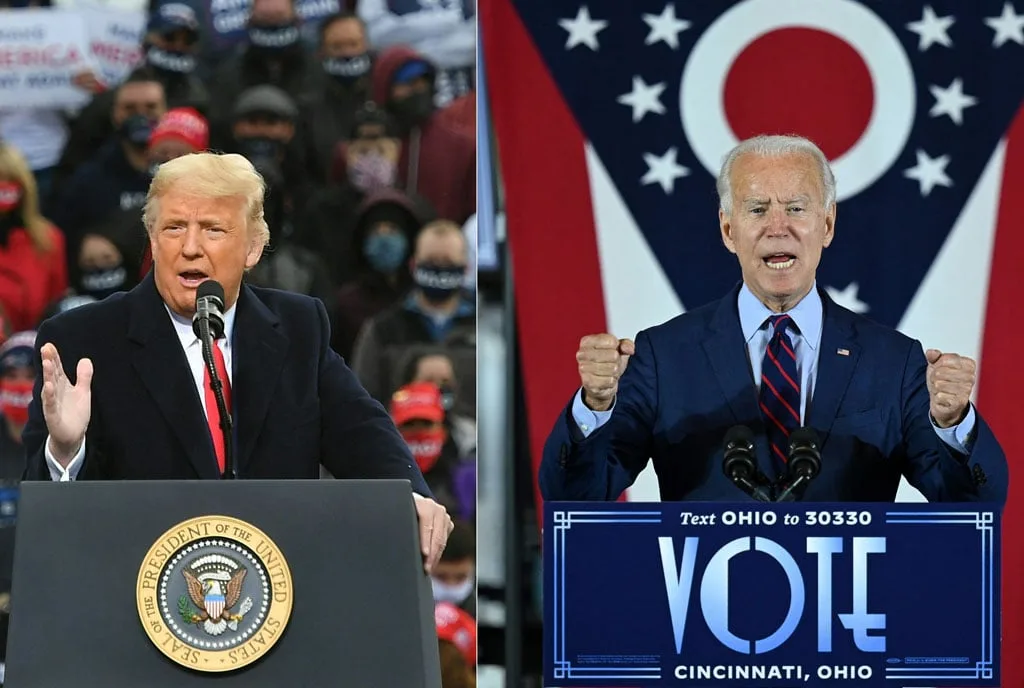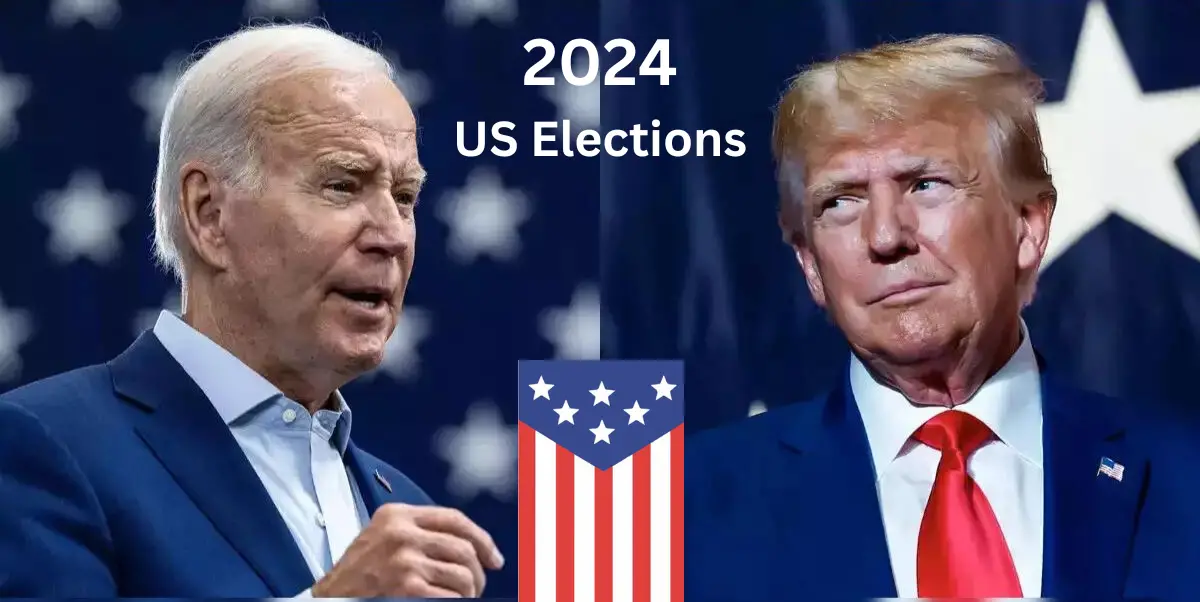Navigating Legal Challenges and Political Campaigns
Donald Trump, the former U.S. President, is navigating a unique challenge as he transitions from a courtroom in Manhattan to the campaign trail in North Carolina. This pivotal moment marks the first criminal trial of a former president, with Trump facing allegations that could potentially influence his political future. The charges relate to accusations of undermining the 2016 election through payments intended to silence allegations of extramarital affairs.
Opening Statements and Electoral Strategies
As the trial begins with opening statements on Monday, Trump must persuade a jury of his innocence against thirty-four charges. Meanwhile, the political arena poses a different kind of challenge. In North Carolina, a key battleground state, Trump’s task is to convince voters to look past the courtroom drama and focus on his campaign promises and past achievements.
Mixed Reactions in the Primaries
Trump’s recent appearance in Greensboro, North Carolina, demonstrated his approach to addressing these legal controversies head-on. He dismissed the charges as illegitimate and accused the proceedings of being politically motivated. Despite these claims, the shadow of his legal troubles loomed large, as evidenced by the mixed responses from Republican primary voters. While Trump secured a significant victory, a notable portion of the electorate expressed reservations, highlighting the potential impact of his legal issues on his fitness for office.
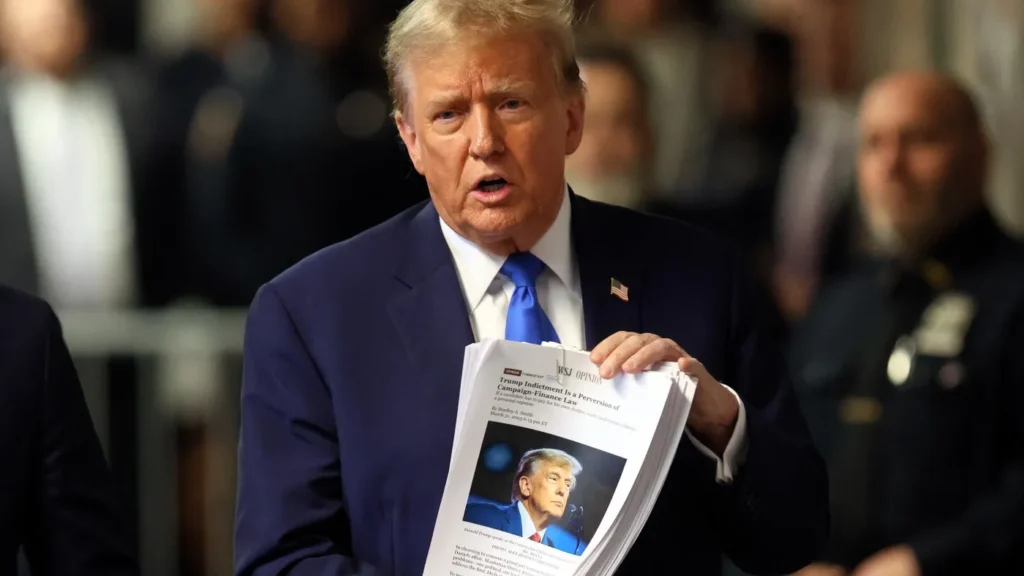
Public Perception and Campaign Statements
Polling suggests a divide in public opinion, with a substantial segment of Americans believing Trump has not violated the law. Trump’s campaign has capitalized on this sentiment, framing the legal actions against him as unjust and politically biased. Campaign spokesperson Karoline Leavitt emphasized the team’s commitment to combating what they view as unfair tactics while continuing to engage with voters nationwide.
Courtroom Drama and Campaign Implications
The trial has been anything but ordinary, with emotional jury selections and dramatic incidents, such as a man setting himself on fire outside the courthouse. Trump has used these events to reinforce his narrative, holding press conferences and actively engaging on social media to share his perspective directly with the public. His claims of unfair treatment are juxtaposed with his commitments elsewhere, as he noted the interference of the trial with his scheduled campaign appearances in several key states.
The Campaign Ahead
Despite the constraints imposed by the trial schedule, Trump’s campaign remains active, with plans to maintain a strong presence across battleground states. The campaign’s strategy focuses on contrasting Trump’s policies with what they describe as the failures of the current administration, aiming to mobilize a base of supporters through a mix of live events and digital outreach.
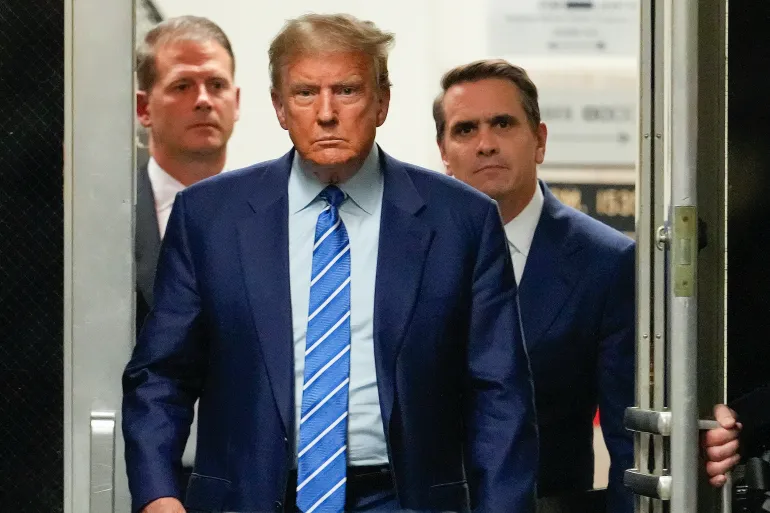
Conclusion
Donald Trump’s dual role as a defendant in a high-profile trial and a presidential candidate in a fiercely competitive election presents an unprecedented scenario in American politics. As he oscillates between court appearances and campaign rallies, the intersection of legal and electoral strategies will continue to shape his public image and political fortunes.

